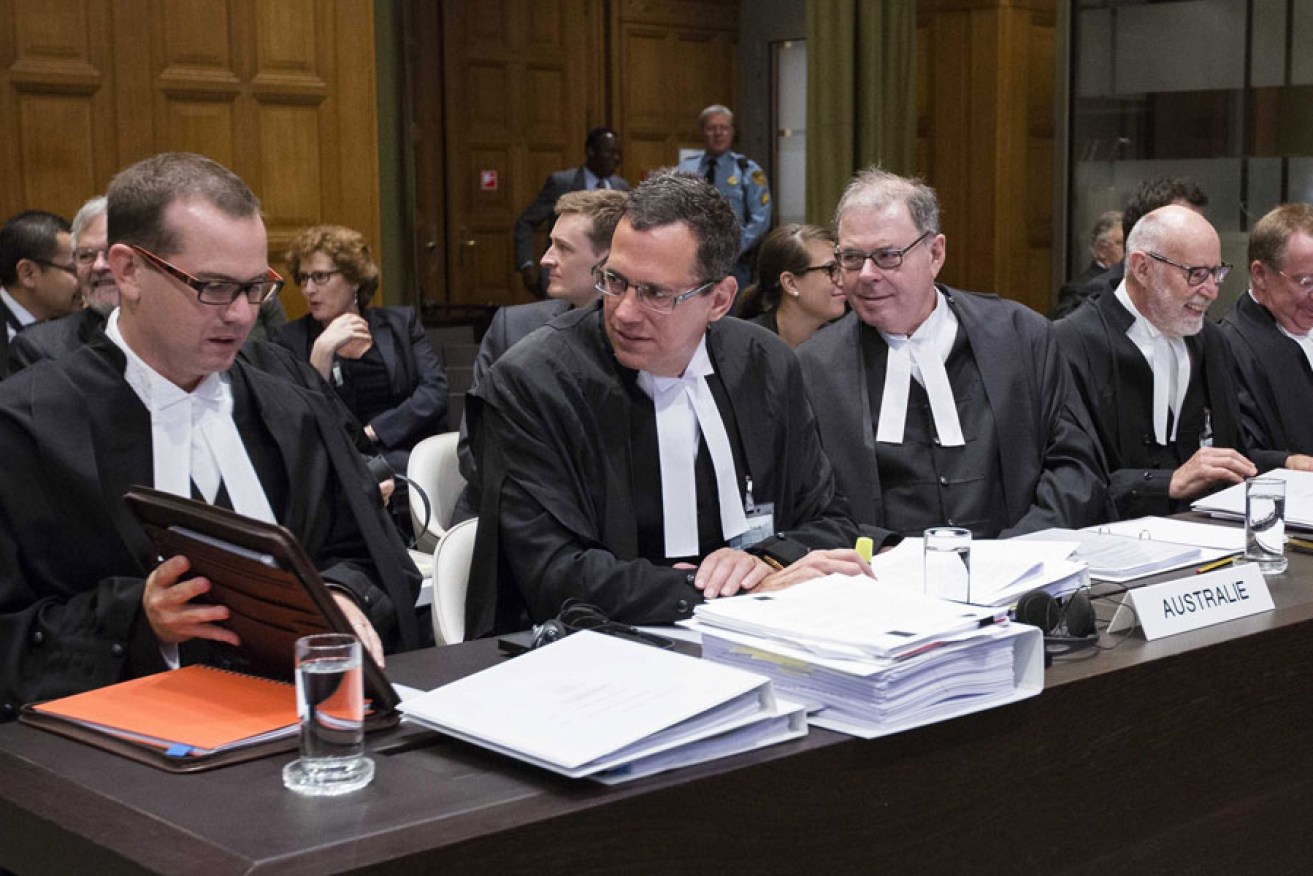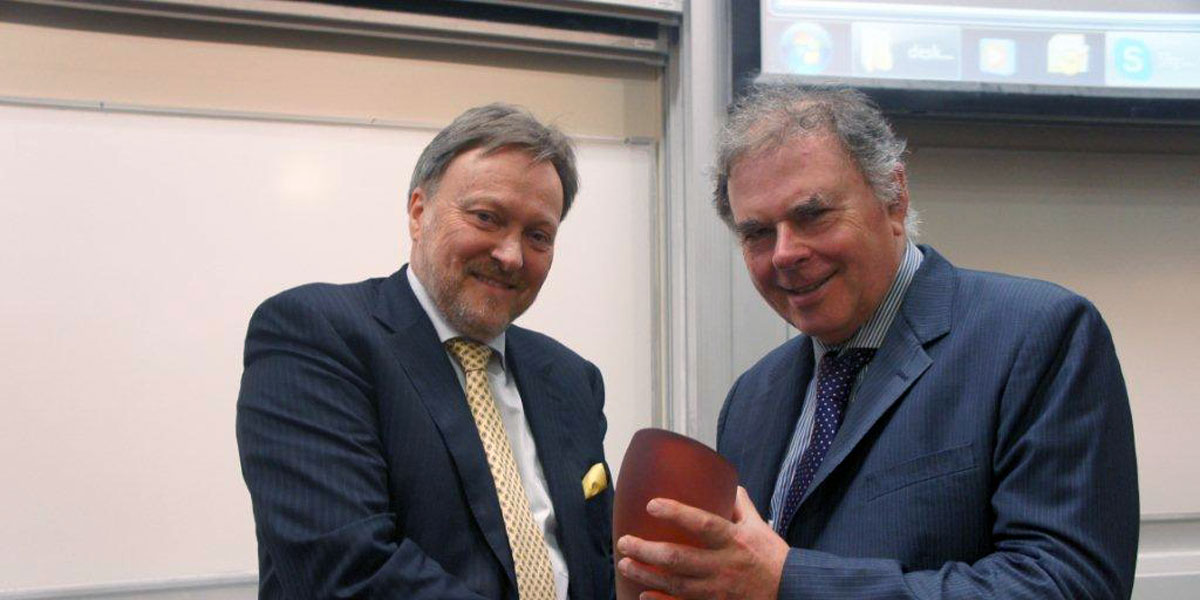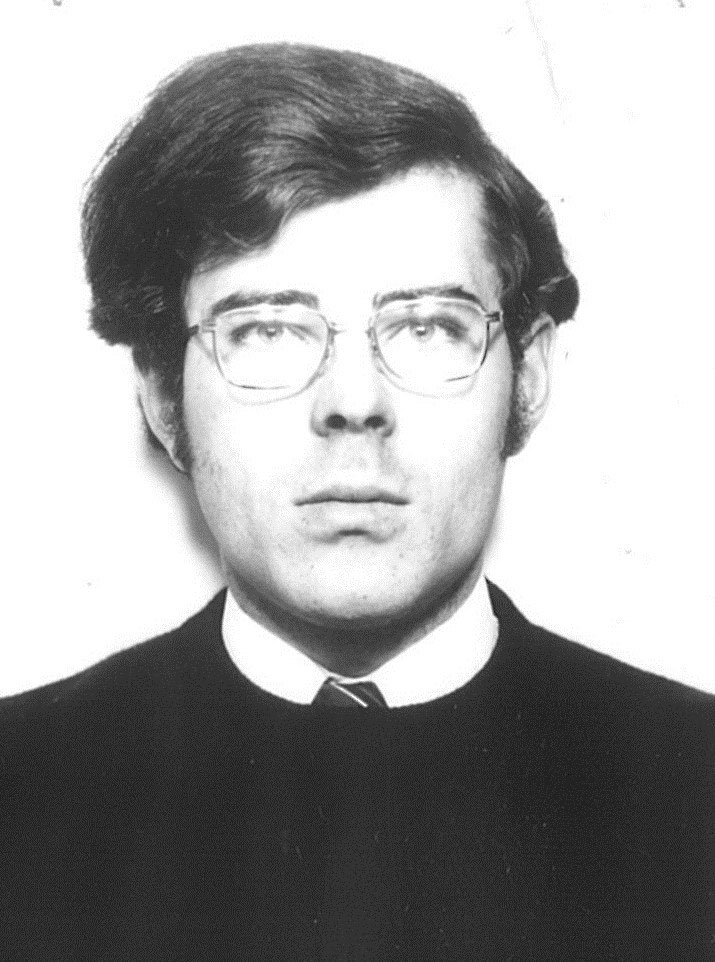Legal mind nurtured in SA, shaping the world

James Crawford (third from left) as part of an Australian delegation in the International Court of Justice.
Meet the Adelaide-raised lawyer who is about to take on one of the most significant legal positions in the world.
On 6 March, 1965, South Australia changed forever. After more than 26 years as Premier, Sir Thomas Playford’s reign was over.
It took just two seats to change government that day: Glenelg (now Bright) and Barossa.
In Glenelg, a grassroots campaign saw Hugh Hudson defeat Sir Baden Pattinson.
It was 16-year-old James Crawford’s first opportunity to see democracy in action – his father, and well-known local businessman, Jim Crawford, had been an ardent supporter of Hudson throughout the campaign.
“One of my first political excitements was the election he (Hudson) won for the seat of Bright in which he ended the Playford Government,” James Crawford recalls.
And so, a new era in South Australia was born; so too were the beginnings of one of the most distinguished legal careers to come out of the state.
In early November, that local boy from Brighton was elected to the International Court of Justice.
“Professor Crawford is the most eminent international lawyer Australia has produced,” Foreign Minister Julie Bishop said.
He’s the second Australian to receive such an honour; Percy Spender did likewise nearly 50 years ago.
Speaking from his office in Cambridge, Crawford reflected on the journey – and it’s been a long one. He was first nominated to the court three years ago, and he won’t join the 14 other judges in The Hague until next year.
“The actual process is a rather tortuous one because [of] the diplomatic process,” he told InDaily.
“One is elected by the General Assembly and the Security Council and needs to get a majority in both places. So if you’re not rather hardened to UN processes it can be a bit mercenary,” he explained.
Luckily for Crawford he’s well versed in how to make things happen in the international community.
Pragmatic and steadfast, he admits while the appointment is a great achievement, it’s a relief to finally focus on the job ahead.
“It means I no longer have to go around saying ‘if I get elected’ and I no longer have to speak in terms of contingencies.”
Despite his appointment resting largely on his international achievements, Crawford first made a name for himself, right here, in Adelaide.
His pioneering nature should come as little surprise – his grandmother, Aileen Constance Ingleby, was the second woman admitted to the South Australian Bar.
“So there was some law in the distant background but not much in the foreground when I grew up,” Crawford said.
In fact, the Crawford name has historically been more closely connected with the South Australian motor industry.
His paternal grandfather, Sidney Crawford, launched Commercial Motor Vehicles back in the 1930s.
Now, in its third generation, Crawford’s brothers run the business – one of the top privately owned companies in South Australia.
However, Crawford found himself drawn to law at the University of Adelaide.
“It was a very good law school with very good and inspiring teachers and I became fascinated by the law as a discipline and it was really that fascination together with the interest in public affairs that led me to international law.”
Crawford flew the nest to continue studies at Oxford but returned to Adelaide to teach, before joining the Australian Law Reform Commission .
Most notable was the three years Crawford spent travelling to the most remote parts of the country, leading the commission in its most renowned work: its report on Aboriginal Customary Law.
Groundbreaking in its findings and commitment to connecting with indigenous communities across Australia, the report was highly controversial at the time.
“It was part of Michael Kirby’s philosophy of law reform that you took the issues to the people who are affected by them and who in this case the people whose law it was,” Crawford said.
Although many of its recommendations weren’t adopted, the report was instrumental in leading the High Court towards recognising native title in the historic Mabo verdict.
Crawford still holds this piece of work as one of his finest.
“The work on Aboriginal Customary Law was probably the single most important piece of work, intellectually, that I ever undertook.”

Crawford (right) with University of Adelaide Vice-Chancellor Warren Bebbington in 2013. Photo: University of Adelaide
Academically, Crawford’s career has been a procession of prestigious appointments: Professor of Law at the University of Adelaide, Dean of Law at the University of Sydney and Whewell Professor of International Law at the University of Cambridge.
Former Justice of the High Court Michael Kirby once called him “one of the most brilliant legal actors on the scene”.
He was the first Australian member of the United Nations International Law Commission, where he helped draft the terms of state responsibility which determine how a nation is held responsible for a breach of its international obligations.
But that’s not all. He also led the charge in establishing the International Criminal Court.
In a twist, Crawford then found himself before the very institution he helped establish, arguing why a man once dubbed “The World’s Most Wanted” should be tried in a different arena. Acting for Libya, Crawford won the case, arguing that Abdullah al-Senussi, a former intelligence chief in Muammar Gaddafi’s regime, should be tried in Libya rather than before court.
Australia continues to reap the benefits of producing one of the world’s finest legal minds.
Last year, Crawford led Australia to one of its greatest victories in international law against Japan and whaling in the Southern Ocean.
“That was a win even though it didn’t, and it was never going to, stop Japanese whaling under so-called scientific whaling.”
After 20 years and more than 100 cases in international litigation, Crawford will have to get used to being on the other side of the bench.
“I regret not being able to do the work in presenting cases to the court.
“It’s been fascinating to watch it [public international law] grow. It may go on growing and it may become even more central to the way things are but it’s only part of what’s going on.” ”
And although his legal mind has shaped many parts of our world, Crawford’s still very much an Australian at heart.
“The main part of my family still live in Adelaide and it’s in one sense still home.
“One of the advantages of the appointment to the court is that I’ll be able to come to Australia more often, hopefully talk to people about international law and the work of the court.
“I’m still very much Australian.”





